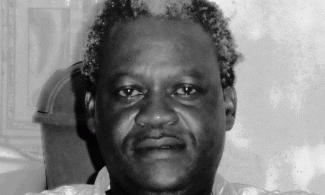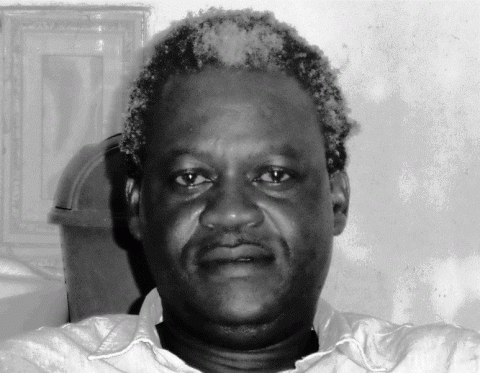
A vision of a nation can only be rooted in grassroots aspirations of the people and cannot be built on poorly-understood imported theories and frameworks.
There are many things profoundly wrong with our country. The hypothetical political, economic and existential frameworks on which the country is built do not fit the facts of our life as a nation. We have borrowed theories that are inherently faulty from source and have imposed them on ourselves as our desired metrics of governance and self-management. Borrowed theories cannot be twisted to produce a national vision. A vision of a nation can only be rooted in grassroots aspirations of the people and cannot be built on poorly-understood imported theories and frameworks. It’s not a surprise that successive leaderships of Nigeria have not been able to define the Nigeria-project and if there is a national vision, then I have not heard of it. What we have had and we have from different regimes and administrations that have ruled this country are ill-defined and unsustainable short-term objectives that get truncated either by coups or by elections. Nigeria is not only home to countless abandoned projects, but it is also the haven of abandoned dreams.
The theoretical framework of Nigerian politics is based on democracy and the rule of law. Democracy, a system inherently divisive, is the political choice in a country where the national substructure sits on an unstable tectonic plate. In an environment where abject poverty is not sufficient to seal the many fault lines that define our existence and instigate a common and popular demand from Katsina to Calabar, any talk of ideological alignments required by democracy is futile and the political parties in Nigeria have abandoned any pretensions at any ideology. On what leg then can democracy stand on the several fault lines of this nation if poverty, a common social enemy is not a decider of electoral outcomes?
The Nigerian democracy is premised on the fact that franchise can be bartered and purchased, and when the holder is unwilling, he must be discounted and ultimately discountenanced. The financial power to purchase people’s franchise is the new ideology. It is a commercial transaction where the buyer completely dispossesses the seller of not only his electoral right, but also, of all his rights as a citizen and as a human being. It is a political ideology founded on a permanent disconnect between rights-holders and the political duty bearers as soon as the transaction is consummated. Thus, politicians need to amass wealth irrespective of the legality of the process and from any source in order to be taken as a serious contender for any political post. The bottom-line is that the legitimate aspirations of the people do not count and indeed must be discounted in order for the Nigerian version of democracy to function. In the Nigerian system, the two arms of governments inhabited by politicians – the presidency and the legislature are products of any other system but democracy.
National institutions which are supposed to promote and protect democracy vis-à-vis the aberrant political system have been reduced to a case of ownership issue. Who owns the institutions? In the mindset of the Nigerian politician, all the institutions of the state belong to the political class. The people neither know nor understand who the legitimate owner is. The managers of these institutions, unsure of themselves, have yielded the control and ownership of the state institutions to the political class. Under this setting, the police heed the biddings of politicians, the central bank opens its vaults to prying fingers, the judiciary sells judgments, the civil service warps its mission, etc. Nothing works…. Nothing, because the superstructure of democracy does not fit and cannot stand on the defective substructure of this nation.
Can the rule of law bring some sanity into the warped political system? The rule of law has become a weapon in the hands of the political class to fight each other. When the existent rules are insufficient for their purposes, they rewrite or invent new ones to fit their immediate desires. In many cases the rules are completely forgotten. The wigs and gowns, all guided and inspired by the large amounts of money to be legitimately or otherwise made, go into a frenzy of interpretations and misinterpretations. The recent arrests of senior judges in Nigeria and the disclosure of their illicit cash accumulations are an indication that the guardians and the final arbiters of the rule of law are unreliable.
The multiple criticisms visited upon the different aspects of our political and economic life presume the workability of the hypothetical frameworks on which the Nigerian political system is built. However, this is not the case. Attacking symptoms does not cure a disease. The criticisms may highlight the rot, but do not put the disease under spotlight. The blatant indifference of the Nigeria political class to scandals that would have sent even the most hardened criminal politician under cover in western countries is a sign that questions have to be asked about the adoption of this political framework.
How low will Nigeria descend before our intellectuals stop mutilating facts to fit the imported political and economic hypothetical frameworks? We must understand that when facts don’t fit a hypothesis, it is time to change the hypothesis. When will we honestly sit down to work out autochthonous systems that will serve our aspirations and build superstructures on this defective substructure? It will be a failure of imagination and intellectual laziness to resign ourselves to this system that has created monsters of politicians. It is not everything that glitters in other climes that can be gold on our shores.
When eventually the process of working out the appropriate political system with inbuilt accountability measures is engaged, it will be a great mistake to involve this present political class, the progenitors and beneficiaries of chaos in the process.
Abimbola Lagunju is a writer and author of several books. You can reach him at [email protected] and read his work here.
